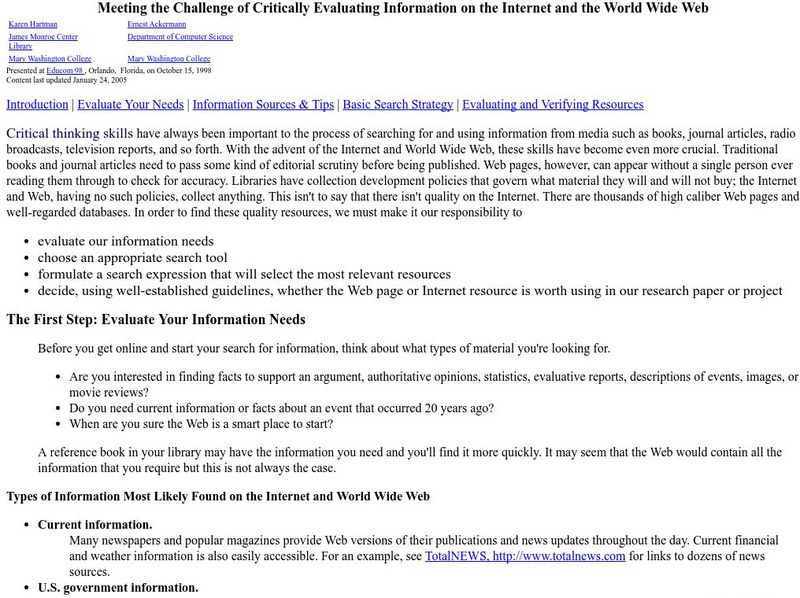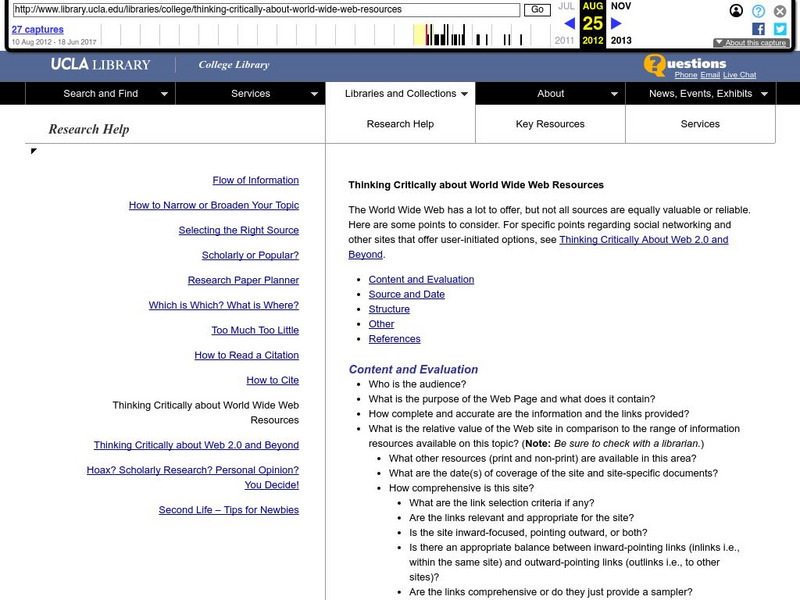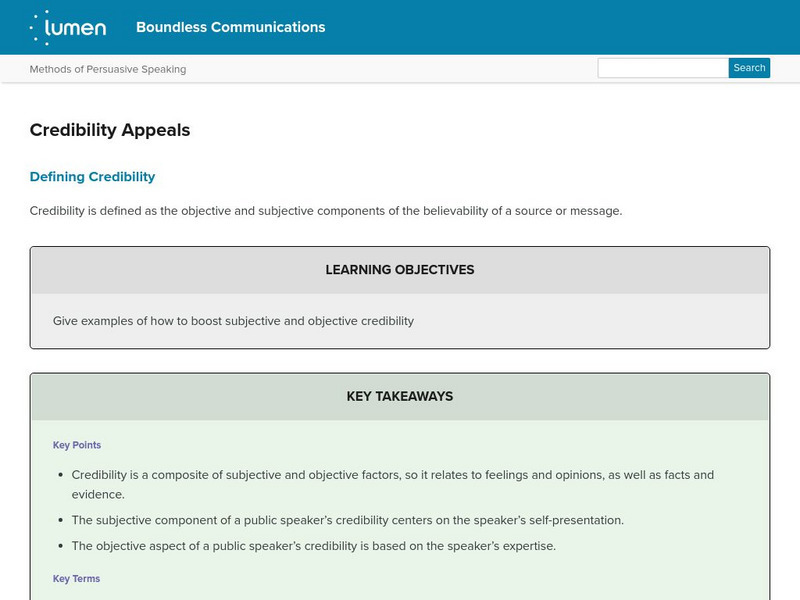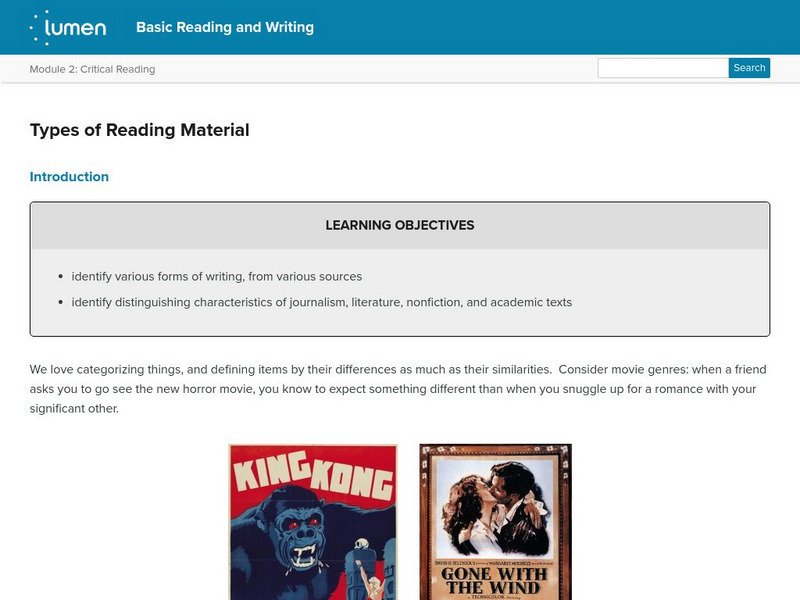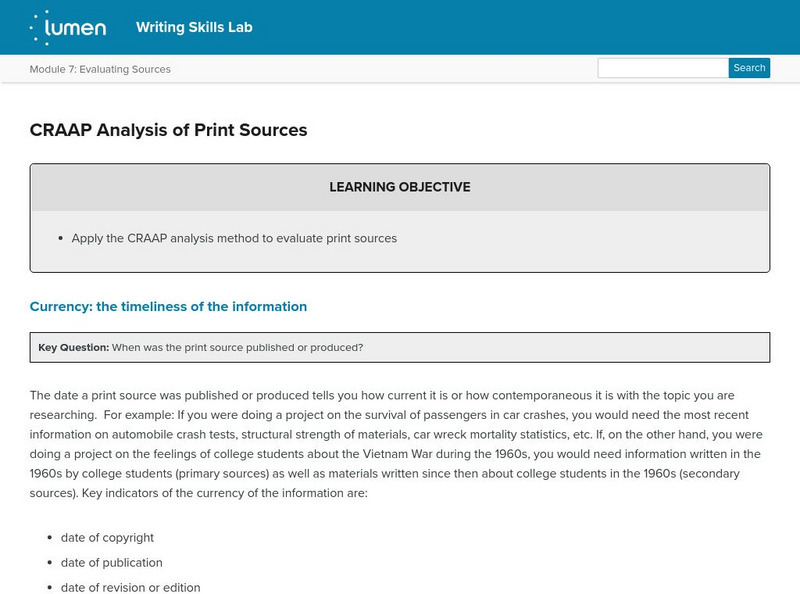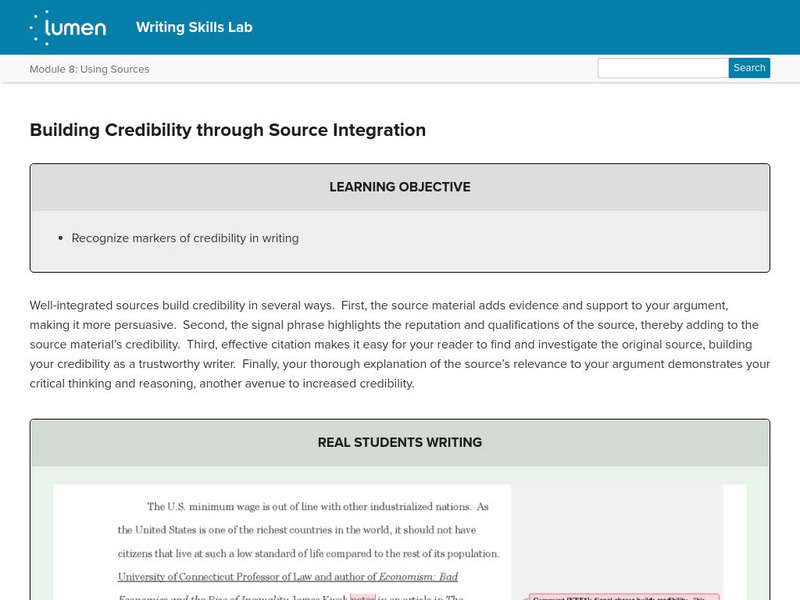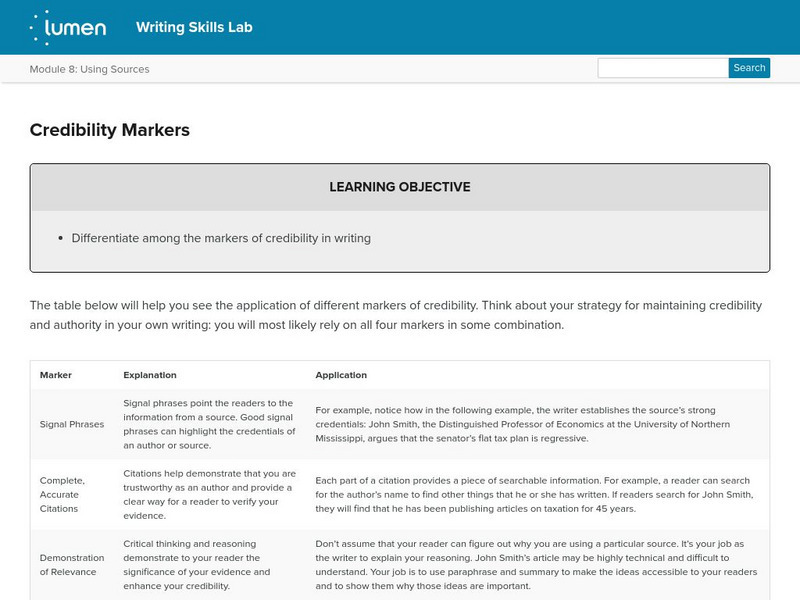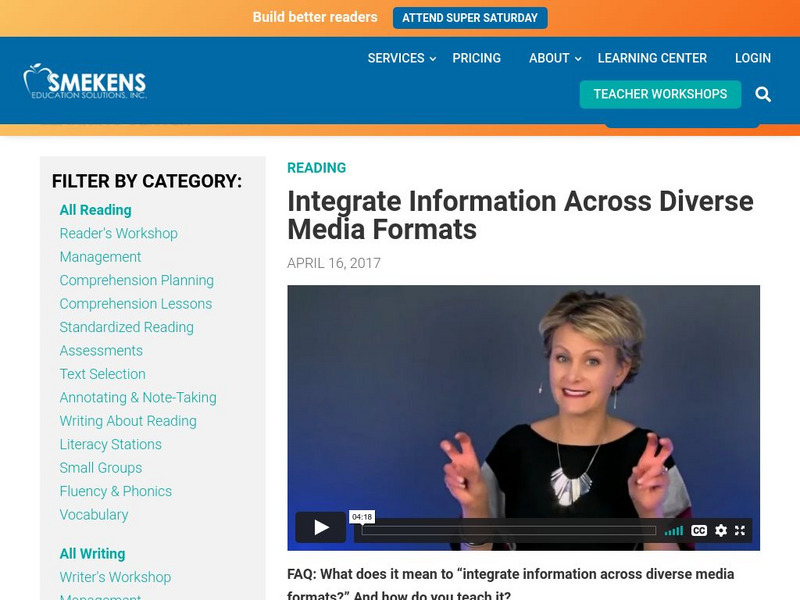Other
Webliminal: Critically Evaluating Information on the Internet
This site gives excellent information on why it's important to evaluate the content of everything you find in cyberspace, and also tells you how to do so. It also contains information about using search engines effectively and how to...
The Write Place
Literacy Education Online: Assessing the Credibility of Online Sources
This site from the St. Cloud State University provides information on online sources. This article explains how to assess the value of online sources based on authorship, publisher, date of publication, depth of material, and...
University of California
Ucla College Library: Thinking Critically About World Wide Web Resources
This site teaches readers how to evaluate the content and quality of web resources, offering questions and checklists to consider.
Other
Fair: Retractions of Reporting Are Quite Selective
Interesting essay on the use of unnamed or anonymous sources, accuracy of reports, and retractions of innaccurate reports by major news outlets. Eye opener.
Other
Monash University Library: Evaluating What You Find
This site explains how to evaluate the information you find in your research and provides practice exercises. It includes three sections: Evaluating the reliability of sources, Academic research on the internet, and Evaluating academic...
Other
Media Activist's Kit for Fairness in Reporting
This site offers the whole package about bias in reporting: what it is, how to identify the source, how to complain about it and be heard, and what to do if all else fails. The site offers an extensive reading list along with detailed...
Lumen Learning
Lumen: Boundless Communications: Credibility Appeals
This lesson focuses on using credible appeals in persuasive speeches including defining subjective and objective credibility, the types and elements of credibility, and the ethical use of credibility appeals. CCSS.ELA-Literacy.CCRA.W.8
Lumen Learning
Lumen: Boundless Communications: Types of Sensory Enhancements
This lesson plan focuses on the types of sensory enhancements and how to effectively use them. SL.9-10.2 eval & integrate sources, SL.9-10.5 Audio Visuals
Lumen Learning
Lumen: Boundless Communications: Understanding Bias in Language
This lesson plan focuses on bias in language such as gender and cultural bias and how to avoid them in public speaking. CCSS.ELA-Literacy.WHST.6-8.2.e
Lumen Learning
Lumen: Critical Reading: Types of Reading Material
This lesson focuses on the types of reading material and their distinguishing features. It also included two videos including the key features from a newspaper story video and a video that defines scholarly articles.
Lumen Learning
Lumen: Evaluating Sources: Introduction to Types of Sources
This is an introduction to evaluating sources and the types of sources available.
Lumen Learning
Lumen: Evaluating Sources: Scholarly vs. Non Scholarly Sources
This lesson plan focuses on types of sources including scholarly vs. non-scholarly sources and print, online, and multimedia.
Lumen Learning
Lumen: Evaluating Sources: Craap Analysis of Print Sources
This lesson focuses on evaluating print sources using CRAAP Analysis: Currency, relevance, authority, accuracy, and purpose. A practice exercise is included. W.9-10.8 Sources
Lumen Learning
Lumen: Evaluating Sources: Craap Analysis of Online Sources
This lesson focuses on evaluating online sources using the CRAAP Analysis: Currency, relevance, authority, accuracy, and purpose. A practice exercise is provided. SL.9-10.2 eval & integrate sources
Lumen Learning
Lumen: Evaluating Sources: Introduction to Multimedia Sources
An introduction to methods of evaluating multimedia sources.
Lumen Learning
Lumen: Evaluating Sources: Craap Analysis of Multimedia Sources
This lesson plan focuses on evaluating multimedia sources using the CRAAP Analysis: Currency, relevance, authority, accuracy, and purpose. Click on the NEXT button on the bottom right for more information. SL.11-12.2 Eval&Integrate...
Lumen Learning
Lumen: Using Sources: Building Credibility Through Source Integration
This lesson plan focuses on building credibility by properly integrating source materials. It discusses three ways of improving credibility through integration, provides an example, and a practice exercise. SL.9-10.2 eval & integrate...
Lumen Learning
Lumen: Using Sources: Credibility Markers
This lesson focuses on strategies for maintaining credibility and authority in your writing. It also provides a table of different types of credibility markers, an explanation, and the application for each. SL.9-10.2 eval & integrate...
Lumen Learning
Lumen: Using Sources: Putting It Together: Using Sources
This is a summary of the lessons on integrating credible sources using paraphrase, summary, and quotations and citing sources. Click on the Next button on the bottom right to learn about Why It Matters: Multimodality; you will have the...
Lumen Learning
Lumen: Research Process: Source Analysis
This lesson focuses on how to analyze sources using the C.R.A.A.P. method, how to integrate sources into your paper, and how to synthesize information from multiple sources. It provides three videos: "Researching 101: Evaluating...
Lumen Learning
Lumen: Finding and Evaluating Research Sources
This lesson focuses on how to find, evaluate, and use primary and secondary sources using printed and online sources. It provides practice writing activities such as examining the same topic through primary and secondary sources and...
University of Victoria (Canada)
Uvcs: Critical Reading Exercise
Students read quotations from different "interest groups" or "lobbies" in this exercise and then perform a multiple-choice test to evaluate the credibility of each lobby group.
Other
Smekens: Integrate Information Across Diverse Media Formats
Read about strategies to help students integrate information across diverse media formats. Includes video. [4:18]
Other
Rhetorica Network: Media / Political Bias
A detailed explanation of how bias works is offered at this site, including critical questions for detecting bias in writing.


